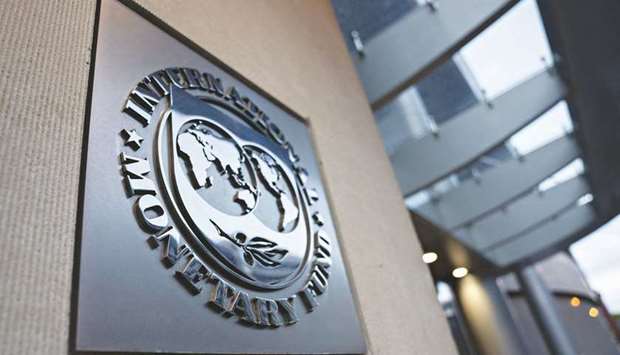The Group of 20 nations yesterday moved closer to an agreement on boosting International Monetary Fund reserves to help poor nations devastated by the global pandemic, according to officials familiar with the discussions.
Talks focused on a proposal for a $500bn allocation of the IMF’s special drawing rights, but the final decision likely will come closer to the lender’s spring meetings in April, the officials said, asking not to be identified before a public statement.
Yesterday’s virtual meeting of finance ministers and central bank governors was hosted by Italy.
The breakthrough came after US Treasury Secretary Janet Yellen leaned towards supporting the action, reversing opposition last year under President Donald Trump. Her predecessor, Steven Mnuchin, blocked the move in 2020, saying that because reserves are allocated to all 190 members of the IMF in proportion to their quota, some 70% would go to the G20, with just 3% for the poorest developing nations.
Yellen on Thursday endorsed strengthening support for developing nations, saying that “without further international action to support low-income countries, we risk a dangerous and permanent divergence in the global economy.” The IMF and World Bank “must continue to play a role in financing the global health response,” she said.
While an expansion in the IMF’s resources could help low-income nations in the fight against the coronavirus, the G20 and others need to work towards “greater transparency and accountability” in the use of the fund’s firepower. More than 200 groups, including the Jubilee USA Network, had called on the G20 to support the creation of $3tn in SDRs. They say the funds are needed to provide debt relief in developing nations and help free up resources for health care and social spending. Some Democrats in Congress have pledged support for a similar-sized move.
There’s a practical reason to focus on the smaller package. Yellen is unlikely to need congressional approval to vote in favor of the increase if the it remains at around $500bn. However, Republicans have already voiced opposition because the issuance would send billions of dollars to Iran, Russia and China, countries that the US sees as violating human rights.
The US is the IMF’s largest shareholder. IMF managing director Kristalina Georgieva earlier this week called for strong action to avoid a scenario where a few emerging markets recover faster but most developing countries are left to languish for years to come. The IMF issued SDRs during the 2009 global financial crisis, and repeating the move could serve the world well again now, Georgieva said in a blog post.

A signage hangs at the IMF headquarters in Washington, DC. Yesterday’s G20 talks focused on a proposal for a $500bn allocation of the IMF’s special drawing rights, but the final decision likely will come closer to the lender’s spring meetings in April, sources said.
